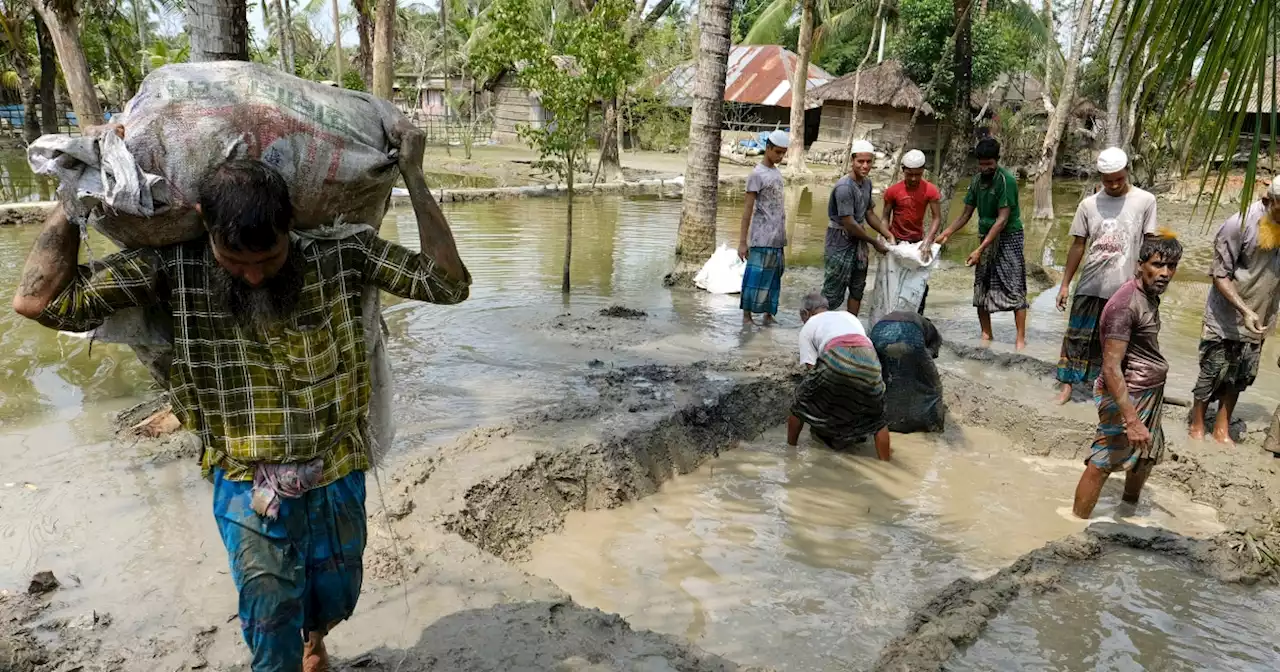As global warming continues to unleash deadly heat waves, intense droughts, floods and devastating wildfires, the researchers from 67 countries called for urgent action to address the crisis.
and acute food insecurity, and how many of the planet’s surviving species are vulnerable to global warming.
“They are losing their crops as the rainfall does not come to water their fields when expected. Adaptation efforts need to address these issues for all,” Castellanos said. “Effective solutions need to provide site-specific actions. Putting vulnerable groups and countries at the heart of the decision-making process on how we respond to climate change can make societies more resilient. We need to remember that we are part of the nature that surrounds us, and not its owners.
Some experts say the adaptation costs for developing countries could be significantly higher. The latest estimates will likely drive more discussion about the responsibility of the U.S. and other wealthy countries that account for much of the world’s carbon emissions to help those in developing countries who are suffering the effects.
About half of the species that have been assessed worldwide have shifted toward the poles or to higher elevations, the report said. The heating of the planet has driven hundreds of local losses of species and has accelerated the pace of extinctions. The researchers said that protected areas worldwide cover less than 15% of the land, 21% of the freshwater and 8% of the ocean. They said that safeguarding ecosystems and biodiversity is critical to help in mitigating and adapting to climate change, and that recent analyses have suggested conserving 30% to 50% of the Earth’s land and waters to maintain their resilience.
“Every action matters,” Ebi said, whether that’s in transportation, energy efficiency or well-insulated buildings. “There are millions of ways we can reduce our greenhouse gas emissions. And we know from earlier IPCC reports that if we start implementing what we already know works, we can go a long way towards achieving 1.5” — meaning the goal of limiting warming to 1.5 degrees Celsius above pre-industrial levels.
While taking steps at the local level to become more resilient, the researchers said, the world must also address the losses and damages being caused by the warming that has already occurred. In North America, the researchers said, climate change has already affected agricultural productivity and is projected to reduce yields of crops such as wheat, corn and soybeans.has compounded water risks, while intensified droughts and diminished snowpack will increase water scarcity, particularly in regions with extensive irrigated agriculture.
Singapore Latest News, Singapore Headlines
Similar News:You can also read news stories similar to this one that we have collected from other news sources.
 At Kenya's biggest dump, urgent calls for a global plastics treatyA short drive from the United Nations complex in Nairobi where talks on a global plastics treaty are taking place this week is Kenya's biggest landfill - a mountain of garbage, carpeted in single-use plastic.
At Kenya's biggest dump, urgent calls for a global plastics treatyA short drive from the United Nations complex in Nairobi where talks on a global plastics treaty are taking place this week is Kenya's biggest landfill - a mountain of garbage, carpeted in single-use plastic.
Read more »
 UN report on climate change: Urgent action needed to secure a 'liveable' futureA new UN report to guide leaders in their efforts to curb climate change warns the world is going to get sicker, hungrier, poorer and more dangerous in the next 18 years.
UN report on climate change: Urgent action needed to secure a 'liveable' futureA new UN report to guide leaders in their efforts to curb climate change warns the world is going to get sicker, hungrier, poorer and more dangerous in the next 18 years.
Read more »
 Urgent action on climate change needed ‘to secure a liveable future,’ U.N. report warnsUrgent new report from the UN says the world is running out of time to stave off the most devastating consequences of global warming.
Urgent action on climate change needed ‘to secure a liveable future,’ U.N. report warnsUrgent new report from the UN says the world is running out of time to stave off the most devastating consequences of global warming.
Read more »
 U of S researcher dives into deep learning to find global solutionsOne of the major global challenges that can be addressed by deep learning computing is food security.
U of S researcher dives into deep learning to find global solutionsOne of the major global challenges that can be addressed by deep learning computing is food security.
Read more »
 U of S researcher dives into deep learning to find global solutionsOne of the major global challenges that can be addressed by deep learning computing is food security.
U of S researcher dives into deep learning to find global solutionsOne of the major global challenges that can be addressed by deep learning computing is food security.
Read more »
